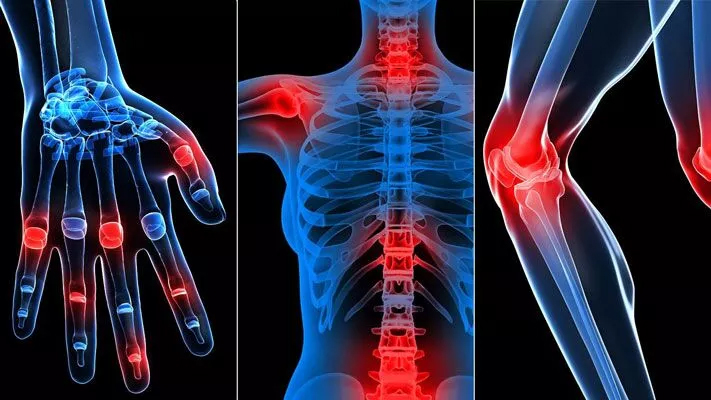 |
| Autoimmune rheumatic patients have poorer health-related quality of life and more severe ocular surface disorders. Photo: JB Arthritis and Rheumatology Center. Click image to enlarge. |
Autoimmune rheumatic diseases are chronic conditions that involve rheumatoid arthritis and can affect mood (often inducing anxiety) and sleep quality. Because emotional disorders and sleep quality have been shown to correlate with ocular surface conditions, researchers aimed to pinpoint the association among autoimmune rheumatic patients. They found that autoimmune rheumatic patients have poorer health-related quality of life and commonly suffer from ocular surface disorders.
A total of 90 autoimmune rheumatic patients (180 eyes) and 30 controls (60 eyes) were assessed for ocular surface disorders, including dry eye disease (DED) by the Ocular Surface Disease Index (OSDI) for symptom evaluation and slit lamp examination for tear breakup time, meibomian gland secretion, symblepharon and corneal clarity, Schirmer I test, corneal fluorescein staining (CFS) and lid-parallel conjunctival folds.
Systemic conditions were evaluated using the Short Form 36-Health Survey (SF-36) for health-related quality of life, Hospital Anxiety and Depression Scale for anxiety and depression, Health Assessment Questionnaire-Disability Index (HAQ-DI) for difficulties in activities of daily living and Pittsburgh Sleep Quality Index for sleep quality. Pearson and spearman’s analysis were conducted to examine the relationship between systemic conditions and ocular surface conditions.
More than 50% of eyes (94 in 180) of autoimmune rheumatic patients and 21.7% of eyes (13 in 60) of controls were diagnosed with DED. The autoimmune rheumatic patients showed significantly higher OSDI score, less basal tear secretion, more severe CFS and conjunctivochalasis. For systemic conditions, autoimmune rheumatic patients had significantly lower SF-36 scores, higher anxiety scores and HAQ-DI scores. Among autoimmune rheumatic patients, OSDI scores were moderately correlated with quality of life, anxiety, depression and sleep quality.
“Autoimmune rheumatic diseases are associated with an overactive and uncontrolled immune response; the tear glands of autoimmune rheumatic patients attacked by autoantibodies often fail to secrete tears,” the authors explained. Patients produced fewer tears than controls, a finding also reported in a previous study.
“The mechanism of DED in most autoimmune rheumatic diseases is focal lymphocytic infiltration and chronic inflammation of the exocrine glands rather than meibomian gland dysfunction,” the authors explained. “This is the reason why most types of DED associated with autoimmune rheumatic diseases are the aqueous-deficient type. Corneal fluorescein staining is an important index to evaluate the severity of dry eye, and autoimmune rheumatic patients had more severe corneal staining than controls.”
No significant association was observed between other ocular surface signs and systemic factors, which indicates that DED affects health-related quality of life, anxiety, depression and sleep quality of rheumatic immune patients more than people without autoimmune rheumatic diseases.
“In general, autoimmune rheumatic patients have poorer health-related quality of life, more difficulties in daily living and suffer from ocular surface disorders,” the authors explained. “Factors including lower quality of life, more anxiety and depression and poorer sleep quality are associated with DED symptoms in autoimmune rheumatic patients. Management of systemic conditions and psychotherapy should also be considered as part of the treatment and have benefits for DED among autoimmune rheumatic patients.”
Ren Y, Tian J, Shi W, et al. Evaluation and correlation analysis of ocular surface disorders and quality of life in autoimmune rheumatic diseases: a cross-sectional study. BMC Ophthalmol. May 22, 2023. [Epub ahead of print]. |

